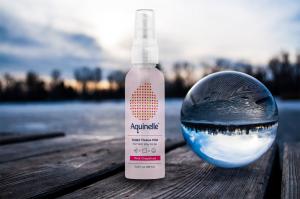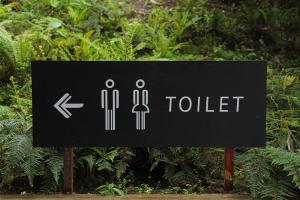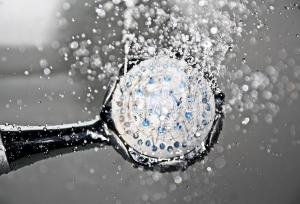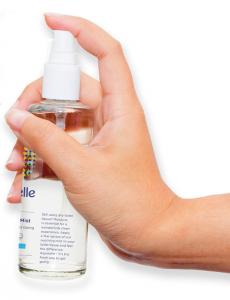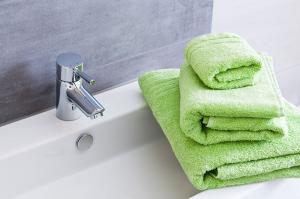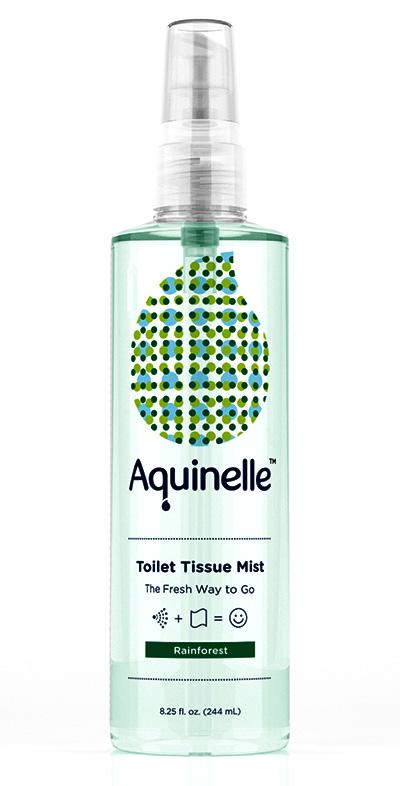
When it comes to personal hygiene - especially relating to zones below the belt - who isn't inclined to a little potty humor every now and then? Growing up, my aunt had a copy of a colorful and crude book called Jokes For The John. Published in 1961, it was loaded with indelicate humor and Playboy-esque comics and came with a chain for hanging right next to your toilet.
We may have come a long way since the days of reading dirty jokes in the bathroom, but the vintage-era charm of this memory comes from recollections of me and my siblings retreating to the bathroom more often than nature intended, simply to sneak a peek at the naughty illustrations.
Today's family bathroom is still a place of retreat, and more importantly it is becoming a place of cleaner, greener living. Here are some eco-friendly adjustments you can make in your bathrooms to improve your home's decor and reduce its impact on the environment.
Save Water & Money With Aerators
To reduce the amount of water you're using, install aerators on faucets and showerheads. It's the most effective water conservation savings: Aerators can reduce home water consumption by as much as 50% thus reducing your energy cost of heating the water by 50%. That's good news for your utility bill - and an added plus for the environment.
Use a Low-Flow Toilet
Low-flow or high-efficiency toilets
are flush toilets that use significantly less water than full-flush models. The
average savings per flush is about two gallons, but when the new water
conservation laws came into effect in the '90s, 'low-flow' quickly became a
dirty word for their inefficiency at disposing of waste. Today's modified
designs offer high-performance and include many push-button versions to dispose
of liquid or solid waste. According to conservationist, George Whalen, making
the switch to water-saving fixtures can save you as much as $100
a year in utility costs.
Use A Tankless Water Heater
Similar to aerators, replacing your tanked water heater with a tankless model reduces the amount of energy consumed and cost to heat water because they only heat what is needed, when it's needed. Plus, no pilot light means it emits less carbon dioxide and improves air quality.
Light Years Ahead
Switch out incandescent bulbs with compact fluorescent bulbs or the new LEDs and CFLs, which use less energy and last much longer. This really is a bright idea: the light is brighter, and they use 75 to 80 percent less energy - a savings of up to $125 per bulb over the cost of their life.
Paint It Green
Finding the right palette for your
bathroom is a pleasing way to set a soothing tone and make it a place of
retreat and regeneration. When decorating, look for paints with a low volatile
organic compounds (VOC) label. They're less toxic and will change your
stereotypes about environmentally friendly design being ugly or merely a
passing fad. You can decorate green
and match your style, use less energy, less water and less non-renewable
resources.
Give Yourself A (Tax) Break
Making eco-friendly bathroom and home
improvements have both an aesthetic and a financial incentive. They can earn
you a tax break. If you're doing significant remodeling and anticipate any
reusable refuse like old sinks, counters and other fittings, contact The ReUse
People (www.thereusepeople.org). They'll
check your trash and ship recyclables to organizations like Habitat for
Humanity. The organization got its start as a flood relief drive known as
Project Valle Verde, and is an extraordinary example of bi-national cooperation
and assistance. They partner with many other green-minded groups, including the
U.S. Green Building Council (USGBC),
a community of more than 6,400 organizations with the goal of transforming the
building marketplace through sustainability.
Go green and you'll see there's a lot to smile about. And remember, no newly green bathroom is complete without Aquinelle Toilet Tissue Mist. The dermatologist-tested, kid-safe, family-approved - not to mention, most hygienic and fuss-free way to keep things clean. Check out all the fragrant and planet friendly varieties here.
Add New
Comments
no comments found
